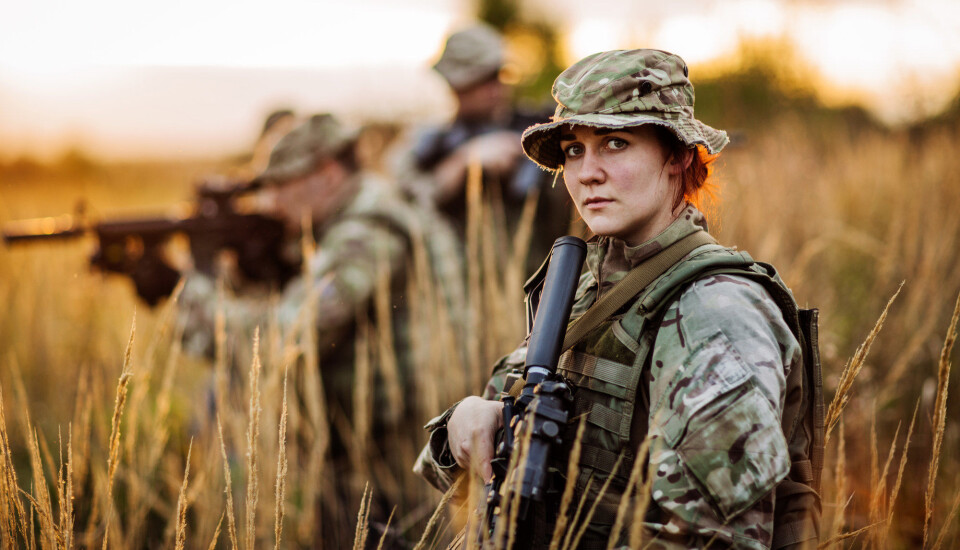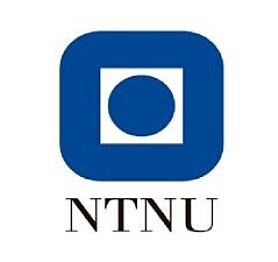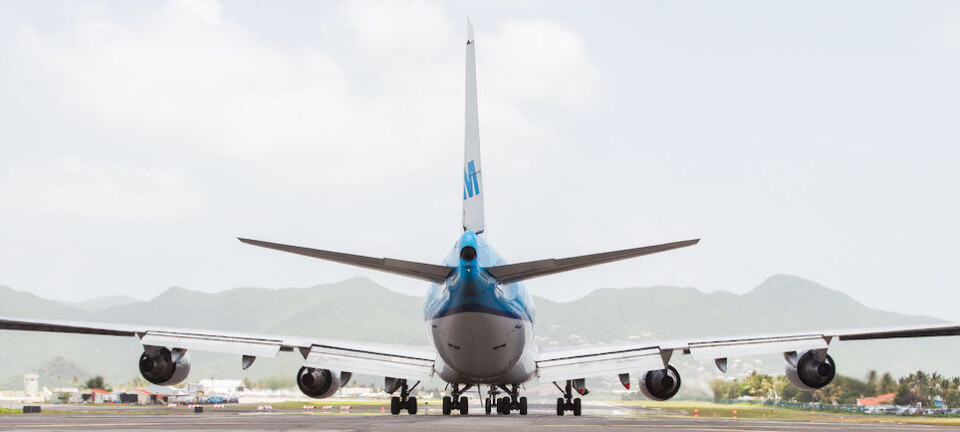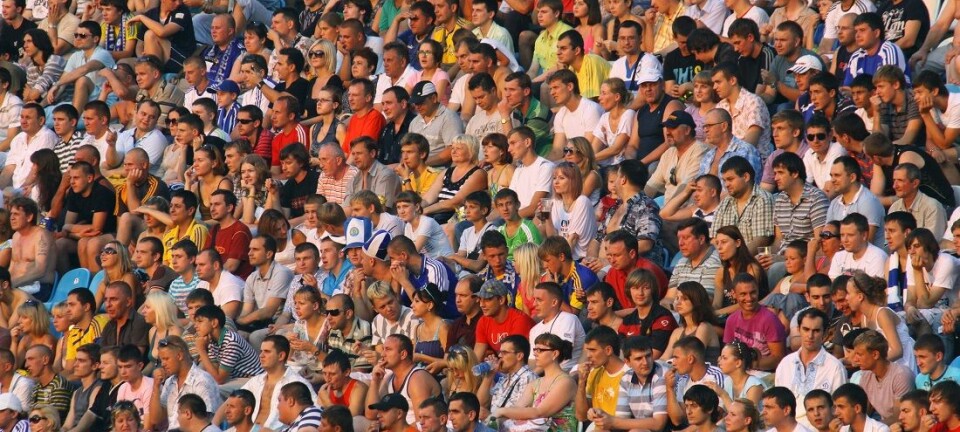This article is produced and financed by NTNU Norwegian University of Science and Technology - read more

Are European NATO states freeloading?
Perhaps the US president has a point. Are European NATO countries simply piggybacking on US defence efforts?
Donald Trump has consistently pressed European nations to contribute more to support NATO.
“Europe has to do more,” he said during a NATO meeting in Warsaw in 2017.
The president then said that “everyone knew” Europe had to contribute more to the defence alliance. But is this true? Well… maybe.
“The results and conclusions aren’t clear,” says Professor Jo Jakobsen in NTNU’s Department of Sociology and Political Science.
Jakobsen has been studying developments in NATO after the Cold War. He has used several different indicators to investigate whether Europe contributes enough in terms of defence spending, the number of soldiers and people’s willingness to fight for their country. The results were published in the journal European Security.
“The end of the Cold War made it possible to reduce defence budgets, which some European NATO countries took advantage of,” said Associate Professor Gunnar Fermann in the same department.
Fermann has recently published a book on the dynamics of military alliances and restrictions that states impose on how their forces may be used when participating in coalition operations. (Gunnar Fermann: Coping with Caveats in Coalition Warfare. An Empirical Research Program. Palmgrave, 2019)
Fewer soldiers, and less money and will to fight
“Since the Cold War, the European NATO members have generally reduced their defence spending,” says Jakobsen.
Most European countries spend less on defence as measured by a share of the gross domestic product (GDP) than they did a few decades ago. Using only this measurement method, Trump is quite right.
“Europe has also largely abolished compulsory military service and reduced troop numbers,” says Jakobsen.
This is yet another indicator that the US president actually has a point.
“The European self-reported willingness to fight has also been quite low since the end of the Cold War, especially in countries that have US military bases,” Jakobsen says.
Fermann points to Germany as a particularly interesting case.
“NATO member Germany reduced defence spending sharply after the Cold War. Today, German military spending is 1.2 per cent of its GDP, in contrast to the US, which spends 3.6 per cent of its GDP on defence,” he says.
Germany appears to be a military dwarf relative to its economic importance and strategic position in Europe, Fermann adds.
“You don’t have to be an American, or Trump, to think that this doesn’t quite fit at a time when the tension in Europe is rising again,” says Fermann.
Assorted threat perceptions
In other words, it’s not a bright picture for anyone who wants to defend Europe’s NATO efforts in recent years. Today, only the UK, Greece, Romania, Estonia, Latvia and Lithuania have met NATO’s target of 2 per cent of their GDP for defence spending. Norway, by comparison, invests 1.54 per cent of its GDP in its Armed Forces. But the situation is not quite that simple.
“This development could also be because political conditions are not perceived to be as threatening in Europe as they were during the Cold War,” Jakobsen says.
But Fermann believes that European NATO countries need to take into account the recent increased tension between NATO and Russia.
The Russian intervention in Georgia in 2008, the tug of war between alliance systems for Ukraine’s allegiance and the Russian annexation of Crimea in 2014 moved several countries to increase their defence efforts again.
The nations that became NATO members after the Cold War, which were generally Eastern European states near Russia, have generally been more concerned about territorial defence.
“For Germany, the security picture is more complicated. As a member of NATO, German authorities have to maintain alliance solidarity in the geopolitical competition between the United States and Russia. At the same time, Germany cooperates extensively with Russia, particularly around energy, which both Poland and the United States view sceptically. This creates conflicting security policy interests that are reflected in Germany’s relatively low defence investments,” says Fermann.
Burden sharing
Traditionally, burden sharing in NATO is measured as the percentage of gross domestic product that prioritizes military defence purposes.
“NATO’s 2 per cent target from 2014 is a mechanism for curbing freeloading states within an alliance that is confronting a possible new cold war with Russia,” says Fermann.
The defence budget’s share of GDP also served as the primary measure of alliance solidarity in NATO during the previous cold war from 1949 to 1989.
In the period of detente between NATO and Russia from 1990 to 2014, on the other hand, the Alliance-leading United States viewed the members’ strategic contribution to NATO less in terms of money and more in terms of their ability to deliver powerful military strength to coalition operations in distant regions.
“But we have to be careful about judging whether Europe has been freeloading. It depends entirely on which indicators you use,” says Professor Jacobsen.
This view is linked to the numerous civil war conflicts, in particular the “war on terror,” that have needed to be dealt with. European NATO countries have participated actively in coalition operations in Afghanistan and Iraq, for example, but to varying degrees.
The United Kingdom, Poland and Denmark have contributed significant troops without major restrictions on the use of force. Germany, by contrast, has been among the more restrained NATO countries, imposing considerable restrictions on the use of force on its troops in Afghanistan.
“National reservations on the use of force in coalition operations reduce military efficiency and have contributed to NATO’s struggle to reach its political goals in Afghanistan,” said Fermann, who has studied alliances and reservations in depth.
American criticism nothing new
President Trump is by no means alone in promoting American criticism of European NATO efforts.
“American demands that European NATO countries contribute more isn’t a phenomenon that arose with Trump,” says Fermann.
President George W. Bush wanted European NATO members to make greater and better contributions to coalition operations in the Middle East and Asia. NATO’s 2005 summit in Riga raised issues related to the fact that several European countries imposed special restrictions on their own troops’ use of force.
Later, President Barack Obama became irritated at countries that he perceived to be freeloaders. He threatened the UK with ending their countries’ “special relationship” unless the UK increased its defence spending. With simultaneous conflicts in several areas, Obama wanted to concentrate more on Asia, but this required European NATO members to take more responsibility in their own regions.
Trump’s desire to reduce US military involvement in Afghanistan and Syria and his demands for greater European efforts in many ways continue the assessment of former US presidents that the United States also needs to prioritize resources.
“If the Europeans want to take greater control of what is in their security policy interests, it follows that European countries must take greater financial responsibility for their own security. You can’t lead from behind,” says Fermann.
No unified voice
But European countries aren’t of one mind in their security policy analyses. Internal disagreements among European NATO members are camouflaged by Angela Merkel and Emmanuel Macron’s rhetorical disputes with Trump. Similarly, Trump’s administration cannot be said to speak with a unified voice.
Fermann believes this will remain a paradox and a challenge as long as NATO and the United States stay locked into European security architecture.
As far back as 1969, the Nixon administration felt that NATO burdens needed to be distributed more fairly among the member countries.
“But we have to be careful about judging whether Europe has been freeloading. It depends entirely on which indicators you use,” says Jakobsen.


































